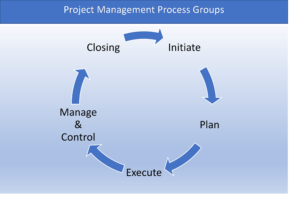#8 Exciting Facts About Getting Into Project Management

A short read 4 minutes
#8 Exciting Facts About Getting Into Project Management
Table of Contents
Project management is the newest, most exciting and rewarding profession to be involved in currently with a career path moving from a junior to a senior level.
Why Get Into Project Management
- Project Management is a most interesting job usually with a good salary and lots of opportunities.
- PM spans across all industries and all countries around the globe.
- The job market is dynamic, active and there is a lot of scope for employment at all levels.
- Unlike many professionals, Project Managers are often contacted about opportunities. Even if you’re not looking for a job, you’re likely to get job offers for project management.
- You get the opportunity to be a leader by leading teams and projects while delivering value to the business.
- PM is an exciting field, you do different things every day and interact with people from different areas of the business constantly whilst delivering an enhanced experience to your customers.
- Senior Project Managers tend to make good Managers, Directors, CEOs, CIOs, VPs, and leaders in general. They understand the two most important concepts people in leadership positions need to manage: resources & money.
- You will learn about managing Change Management, Risk Management, Resource Management, Financial Management, Marketing and even the Legal aspects of the business while working on a project.
Essential Skills Gained By Studying Project Management Fundamentals
Becoming a project manager takes time, knowledge and practice. This training course will introduce key skills, provide core knowledge and how to apply skills learned. It is important to lead a project to success and to know how to use leadership and behavioural facets to do so.
The Project management life cycle runs from initiation to the closing of a project. Management tools and techniques are vital for a successful outcome.
The critical aspects of time, cost and scope need to be balanced to meet the client’s expectations.
Project managers need the ability to apply best practices of various industries and businesses.
Working on a project in the global market requires the ability to work within the confines of regional social and cultural aspects including legal and regulatory practices and technology and infrastructure
Understanding practical ways to use PM skills, whether the project is small, medium or large requires training. Knowledge of acronyms is essential (e.g. ASAP)
Most are important is understanding the critical things to do and avoiding what you must not do.
Most Important Reasons For Starting A Career In Project Management
This is a rewarding career with a great salary and tons of opportunities.
Furthermore, Project managers are in high demand. In fact, a study by the PM Institute found that, by the year 2027, employers will need 87.7 million people to fill project management-related roles. Globally, the workplace continues to grow and evolve and project managers play a pivotal role in an organisation’s ability to adapt to an everchanging environment and to remain agile.
Project managers are, not surprisingly, natural problem-solvers as this one of the main requirements of the job. In addition to setting the plan and guiding teammates through the project, they are tasked with managing changes and risks. Each day is dynamic and different for a project manager because they are at the centre of the project, building relationships, prioritizing tasks, and delivering results! Using various tools and templates, as well as a unique skill set, the project manager brings order to chaos.
No previous background knowledge is necessary to start training in project management fundamentals.
Critical Project Management Skills.
- Core knowledge and applied skills in Project Management.
- To lead a project to success, and how to capitalize on the leadership and behavioural facets to do so.
- The tools and techniques to manage the comprehensive project management life cycle for a project – from initiation through closing.
- To balance the critical trade-offs of time, cost and scope to meet customer expectations.
- The ability to apply best practices across a variety of industries and businesses.
- To navigate the social and cultural aspects, legal and regulatory practices, technology, and infrastructure that influence projects’ success in the global market.
- Practical ways to use project management skills, whether your project is large or small.
- Project Management acronyms.
- The DOs and DON’Ts of Project Management.
FAQ’S
What Is Project Management?
Project management is the way a person organizes and manages resources that are necessary to complete a project. People that manage projects are known as Project Managers. A project is a piece of work that is not a process or an operation. It has a start, an end, and goals.
What are PM fundamentals?
Learn about initiating projects, planning for time and cost, planning for project risk, communication, and change control, executing, managing, and controlling a project, and closing a project.
What does a project manager do?
Project Managers are responsible for planning, organizing, and directing the completion of specific projects for an organisation while ensuring these projects are on time, on budget, and within scope.
What industries use project managers?
Sectors to look for Project Management Jobs which include the construction and engineering, financial services, information technology, healthcare, and law sectors.
I look forward to any comments and where your company has started using shorter workshop training sessions and our Work Ready courses. Arnold email sales@collegeafricagroup.com
Learn More About Workshop Sessions
MS Office
MS Excel
Excel Guru
MS Project
Softskills
Accredited Project Management
